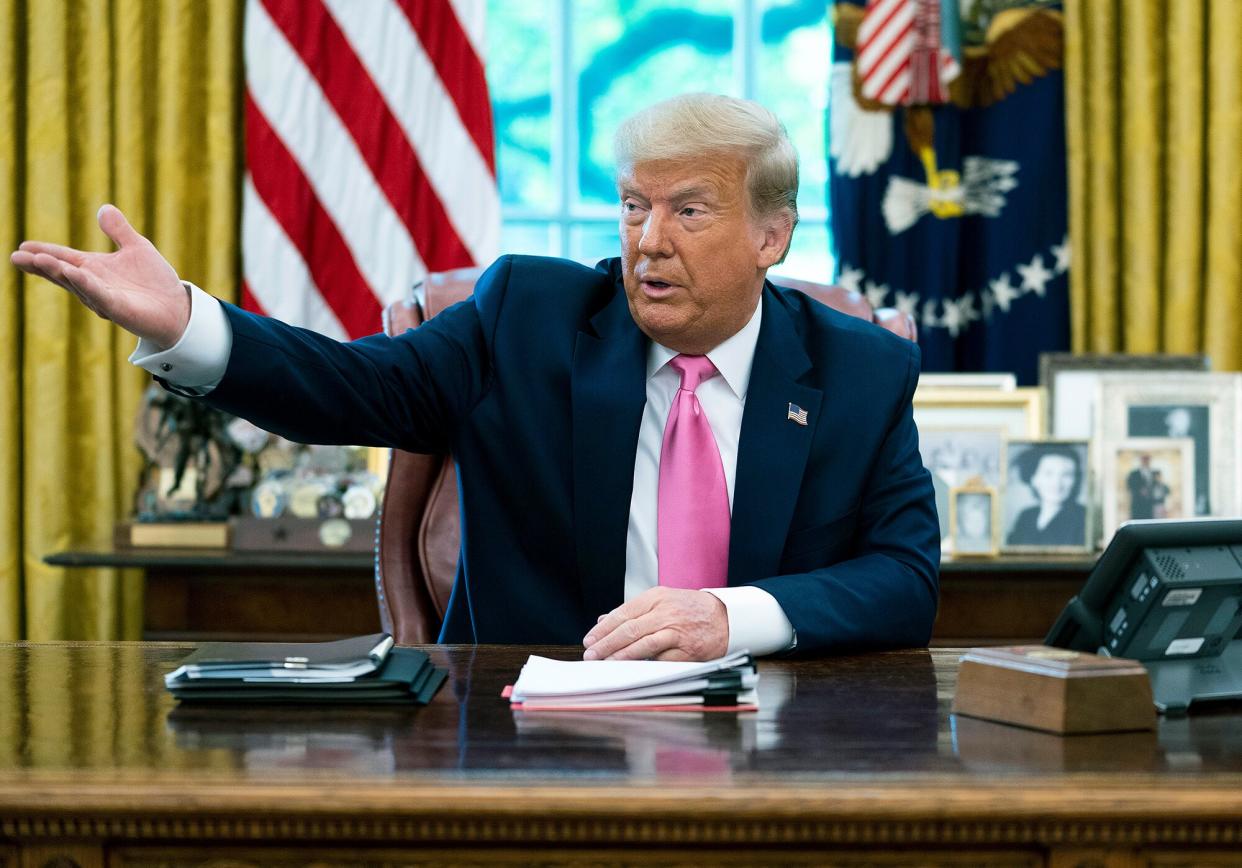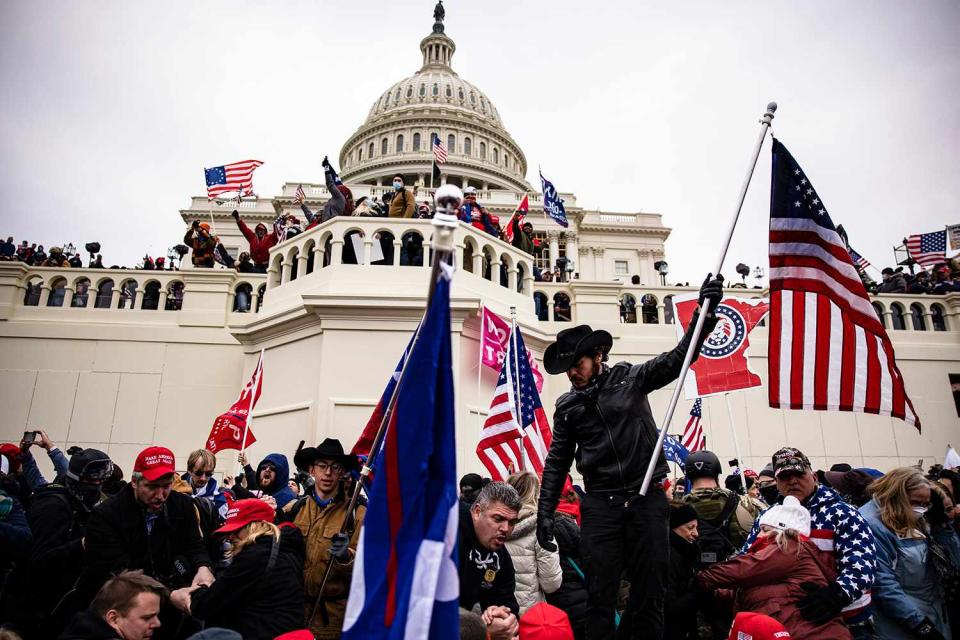Trump Admits 'I Didn't Win' the 2020 Election During Video Call with Presidential Historians

- Oops!Something went wrong.Please try again later.
Doug Mills-Pool/Getty Images Donald Trump
Academic historians writing a scholarly account of former President Donald Trump's time in the White House were given an unusual opportunity to hear from their subject when he joined six of the project's 17 authors for a Zoom conference last summer.
Julian E. Zelizer, the editor of The Presidency of Donald J. Trump: A First Historical Assessment, writes in a new piece for The Atlantic that the meeting was suggested by Trump, who hoped that the historians would produce "an accurate book."
"Your book is a very important book. I'm looking at the list [of authors], it's a tremendous group of people, and I think rather than being critical I'd like to have you hear me out, which is what we're doing now, and I appreciate it," Trump said during the call, organized by Princeton University.
RELATED: Ex-White House Chief Photographer Won't Release Her Own Book After Trump Released His: Report
"For someone who claimed indifference about how people in our world viewed him, Trump was spending an inordinate amount of time — more than any other ex-president that we know of — trying to influence the narratives being written about him," Zelizer wrote, adding that Presidents Barack Obama and George W. Bush did not participate in previous books in their series.
Seated at a wooden desk next to an American flag at his Bedminster Golf Club in New Jersey, the former president "seemed to want the approval of historians, without any understanding of how historians gather evidence or render judgments," Zelizer wrote.
RELATED VIDEO: The Melania and Donald You Don't See, According to Ex-Aide
During the 80-minute conversation, Trump spoke about his administration's economic policies, the COVID-19 pandemic response, foreign policy negotiations with South Korea, Iran and others as well as the merits of communicating via presidential press releases versus tweets. (Trump has embraced the former after being banned from using the latter in the wake of the U.S. Capitol attack by his supporters.)
In the conversation with historians, Trump more than once admitted to losing the 2020 election to now-President Joe Biden — a rare concession, though he continued to make baseless claims of fraud — Zelizer points out in this piece.
Speaking about negotiations with South Korean President Moon Jae-In on spending more on the country's military defense, Trump claimed he was close to a deal. "And then the election came," Trump said, adding, "By not winning the election, he was the happiest man."
"We had a deal all set, and then when the election was rigged and lost," he added, "what happened is that the deal went away."
Also, Zelizer wrote, "At one point he [Trump] said, 'when I didn't win the election' — phrasing at odds with his false claim that the 2020 vote was stolen."
RELATED: Trump's White House Letter for Biden 'Was Long' with 'Very Lovely' Handwriting

Samuel Corum/Getty Rioters at the U.S. Capitol on Jan. 6, 2021
About Jan. 6, 2021, Trump said he spoke to "the largest group of people I've ever seen assembled" and claimed "more than a million people" gathered to hear his remarks near the White House at the Ellipse.
"My speech was a presidential speech," he said. "It was very modest in many ways, and it was a very peaceful speech. And there was a lot of love out there. There was tremendous love."
Of the violence that unfolded later that day, Trump insisted it was "a tiny portion" of the crowd that went to the U.S. Capitol and engaged in violence. Multiple people died and lawmakers briefly went into lockdown.
RELATED: Justice Clarence Thomas' Wife Ginni Urged Mark Meadows to Overturn 2020 Election, Texts Reveal
"I also think they were infiltrated with — and I think people know this — but they were infiltrated and strongly infiltrated with [Black Lives Matter] and with antifa [the far-left movement]," Trump continued, arguing that "the Capitol Police was very much at fault" for the rioting.
While the historians' tome is set for release this month, Trump gave his own assessment during his conversation with the academics.
"We've had some great people; we've had some people that weren't so great. That's understandable," Trump said, according to Zelizer. "That's true with, I guess, every administration. But overall, we had tremendous, tremendous success."

